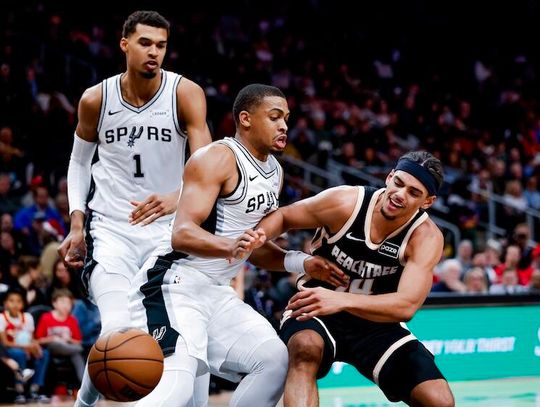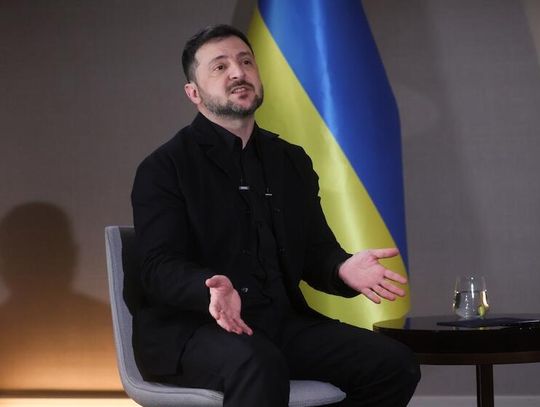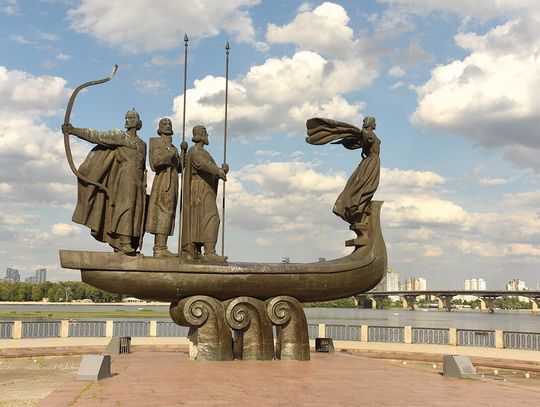Ostatniej nocy miałem dziwny sen.Śniło mi się, że znów mieszkam przy końcowej stacji kolejki w Ravenswood, blisko Montrose i Kimball. W moim śnie słyszałem, jak wagony kolejki wjeżdżały na stację dzień i noc. Słyszałem, jak ich koła zgrzytają o metalowe szyny i w moim śnie zacząłem iść po torach w kierunku śródmieścia, do miejsca, w którym tory naziemne schodzą w podziemia. Ostatecznie znalazłem się pod ziemią gdzieś w Loop, w świecie metra. Tam spotkałem ludzi żyjących w tych tunelach, mężów i żony, którym urodziły się żaby.W tym śnie jedna z tych żab w jakiś sposób przez moje usta wpełzła do mojego ciała, przez mój żołądek do mojego łona. Jedynym sposobem, w jaki mogłem się jej pozbyć, było urodzenie jej. Więc w ciemności tunelu kolejki w Chicago urodziłem żabę.To był dziwny sen i nie wiem, co znaczył, jeśli w ogóle coś znaczył, ale jeszcze dziwniejsze jest to, jak często moje sny dotyczą Chicago. Nie mieszkam tam od 48 lat, ale ciągle śnię o tym mieście.Oto kolejny sen, jaki ostatnio miałem o Chicago. Był o zniszczonym i opuszczonym domu, w którym moi rodzice i ja mieszkaliśmy w naszej starej dzielnicy – Humboldt Park.W tym śnie była okropna burza, wszędzie uderzały pioruny. Ulewny deszcz padał falami, wszędzie. We śnie gapiłem się przez okno na ogród, który moi rodzice posadzili za domem. W ogrodzie była stopa wody. Ogórki i ziemniaki tonęły. Za ogrodem, w alei płynęła rzeka wody.Otworzyłem tylne drzwi, żeby zobaczyć, czy woda spływa po schodach do domu, i tak było. Woda przelewała się przez próg.Aż do tego momentu sen był cichy, z wyjątkiem ciężkiego odgłosu deszczu i grzmotów. Odwróciłem się w stronę kuchni i krzyknąłem do ojca: „Szybko, tata, szmaty, szmaty!”Dlaczego śnią nam się takie sny? Nie jestem pewien. Może śnimy je, by przypomnieć sobie, kim jesteśmy i skąd pochodzimy. W pierwszym śnie zgubiłem się w tunelu kolejki w Chicago, ale nawet tam wyobraziłem sobie wyjście. To samo było z drugim snem. Świat tonie, ale ja nadal czuję, że jest sposób, by to naprawić i może mi w tym pomóc mój ojciec.A może miejsce, z którego przybyliśmy, chce nas trzymać blisko. Kiedy byłem dzieckiem dorastającym w Chicago, moi rodzice często dzielili się swoimi snami ze mną. Tata opowiadał mi o snach, w których pracuje na farmie z ciotką i wujkiem na północy Poznania. Mama uwielbiała opowiadać mi o swoich marzeniach sennych o wiośnie i jesieni w lasach wschodniej Polski.Może sny przypominają nam życie, które dzielimy z ludźmi, których kochamy.
Chicago Dreaming
I had a strange dream last night.I dreamt that I was living again at the end of the Ravenswood El near Montrose and Kimball. In my dream, I kept hearing subway cars pulling into the terminal all day and all night. I heard their wheels scraping against the metal rails, and in my dream I started walking along the tracks toward downtown, toward the place the elevated became the subway. Finally, I was somewhere in the Loop in an underground, subway world. There I met the people living in those tunnels, the husbands and wives, and the frogs they gave birth to.In my dream, one of these frogs somehow got into my mouth and crawled into my body, through my stomach and into my womb. The only way I could get rid of it was by giving birth to it. So in the darkness of the subway tunnels of Chicago, I gave birth to a frog.It was a strange dream, and I don’t know what it means if it means anything, but what’s stranger still is how often my dreams are about Chicago. I haven’t lived there for 48 years, but still I dream about the city.Here’s another dream I had recently about Chicago. It’s about the run down house my parents and I lived in in our old neighborhood near Humboldt Park.In the dream, there was a terrible storm, lightning striking everywhere. The rain was heavy and falling in waves, everywhere. In the dream, I was staring out the window at the garden my parents had planted in the backyard. There was a foot of water in the garden. The cucumbers and potatoes were drowning. Just beyond the garden, there was a river of water in the alley.I opened the back door, to see if the water was coming up the stairs to the house, and it was. The water was pouring over the threshold.Up to this point, the dream was silent except for the heavy sound of the rain and the thunder. Then I turned to the kitchen and shouted to my father, “Quickly, tata, rags, rags!”Why do we dream such dreams? I’m not sure. Maybe we dream them to remind us who we are and where we come from. In the first dream, I’m lost in the subways of Chicago, but even there I imagine a way out. Same thing with the second dream. The world is drowning, but I still feel there’s a way to fix it and that my father can help me with that.And maybe the place we came from wants to keep us close. When I was a child growing up in Chicago, my parents often shared their dreams with me. My father told me of his dreams of working on the farm with his aunt and uncle north of Poznan. My mother loved to tell me of her dreams of spring and fall in the woods in eastern Poland.Maybe dreams are a reminder of the lives we share with the people we love.
John Guzlowski
amerykański pisarz i poeta polskiego pochodzenia. Publikował w wielu pismach literackich, zarówno w USA, jak i za granicą, m.in. w „Writer’s Almanac”, „Akcent”, „Ontario Review” i „North American Review”. Jego wiersze i eseje opisujące przeżycia jego rodziców – robotników przymusowych w nazistowskich Niemczech oraz uchodźców wojennych, którzy emigrowali do Chicago – ukazały się we wspomnieniowym tomie pt. „Echoes of Tattered Tongues”. W 2017 roku książka ta zdobyła nagrodę poetycką im. Benjamina Franklina oraz nagrodę literacką Erica Hoffera za najbardziej prowokującą do myślenia książkę roku. Jest również autorem serii powieści kryminalnych o Hanku i Marvinie, których akcja toczy się w Chicago oraz powieści wojennej pt. „Retreat— A Love Story”. John Guzlowski jest emerytowanym profesorem Eastern Illinois University.-John Guzlowski's writing has been featured in Garrison Keillor’s Writer’s Almanac, Akcent, Ontario Review, North American Review, and other journals here and abroad. His poems and personal essays about his Polish parents’ experiences as slave laborers in Nazi Germany and refugees in Chicago appear in his memoir Echoes of Tattered Tongues. Echoes received the 2017 Benjamin Franklin Poetry Award and the Eric Hoffer Foundation's Montaigne Award for most thought-provoking book of the year. He is also the author of two Hank Purcell mysteries and the war novel Road of Bones. Guzlowski is a Professor Emeritus at Eastern Illinois University.










